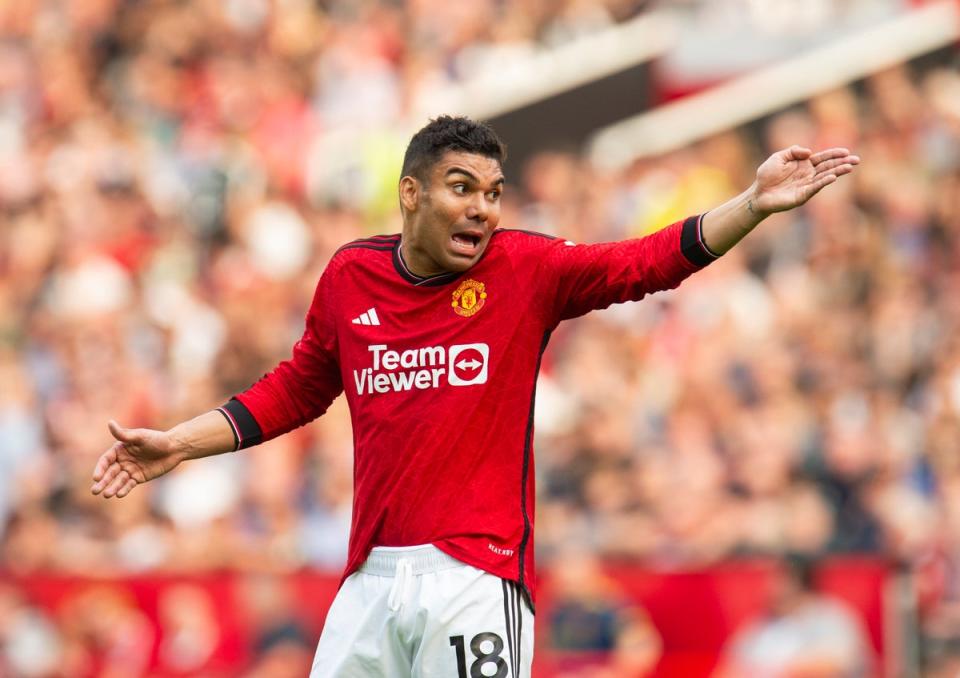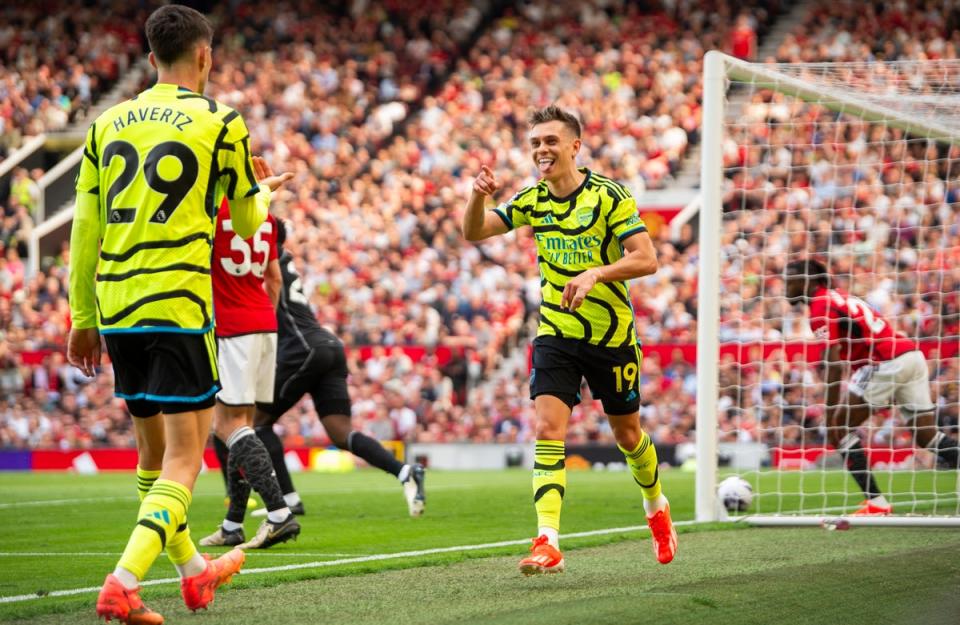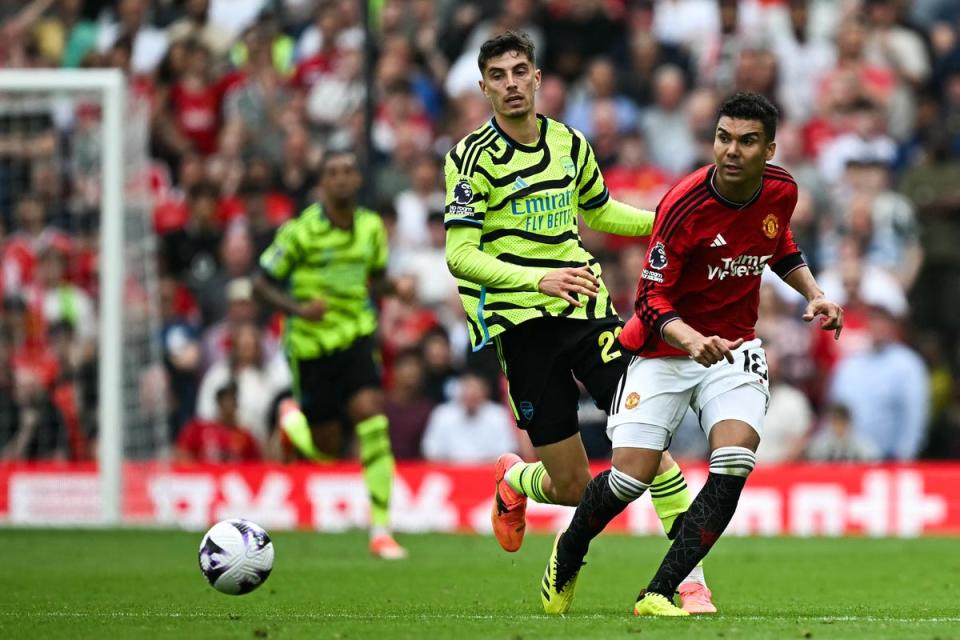Casemiro’s struggles reveal the toil of Manchester United’s concerning decline

Manchester United’s last title challenge came 11 years, five managers and an interim appointment ago. And yet they could have had their greatest impact on the destination of the trophy since the days when Sir Alex Ferguson prowled the technical area, fingers tapping his watch. They had already ended one title tilt; Arsenal ensured they did not strike down both of Manchester City’s rivals to anoint their neighbours as champions.
Still, more than the four points United denied Liverpool, the psychological blow of failing to beat such a terrible team – despite 87 shots in three games – was too much even for Jurgen Klopp’s mentality monsters. They exited the title race in embarrassment, reeling in incomprehension. Arsenal created fewer chances at Old Trafford and emerged with more points. In recent weeks, 4-3 has been a more familiar outcome in United matches than 1-0 so there was an old-fashioned element to the scoreline.
And, indeed, an old-timer responsible for it. Leandro Trossard was the scorer, a 17th goal of the season underlining that he is the kind of bargain United have unearthed too rarely in recent years. But Casemiro was the culprit, his unique interpretation of the offside trap permitting Arsenal to register just a second league win at Old Trafford since 2006.
It compounded a wretched week; it is tempting to call it the worst of his career. Given his extraordinary medal collection and reputation as a byword for success, there may be precious little competition for that description. Yet if Real Madrid’s progress to the Champions League was an illustration that he was more dispensable than Luka Modric and Toni Kroos, his older, classier sidekicks, that has become a footnote in an undignified tale of decline.

There was Monday’s 4-0 evisceration at Crystal Palace, bookended by goals for which Casemiro was horribly at fault: left on his backside for the first – does any footballer spend more time sitting down on the pitch? – and losing the ball for the fourth. On Friday, he was dropped from the Brazil squad for the Copa America. He had been captaining his country recently and led United on Monday, only to lose the armband to Scott McTominay, who they tried to sell last summer, on Sunday.
And then, against a club who used to be famed for their innate ability to play offside, came Casemiro’s version of offside: lounging 10 yards behind the rest of the defence, allowing Kai Havertz to sneak in and cross for Trossard. Too slow to get out when Andre Onana cleared the ball, he was too slow to get back when Trossard stole in behind him. He was strolling when he needed to be sprinting, but then he cannot sprint any more. He was in the position of a sweeper, but United were not deploying a sweeper system.
The mitigation is that Casemiro was a centre-back, even though he isn’t a centre-back. United’s four main choices in the position are injured. There was an ersatz partnership in which Jonny Evans was the quicker member and he is of sufficient vintage that he featured in Manchester United’s last Champions League semi-final. And that, by way of reference, was in 2009. However, if Casemiro arrived at Old Trafford able to play the game at his own pace, he has been shorn of his imperiousness, his authority in part because of his lack of pace. In a league defined by speed, he can only amble.

His was a genuinely weird piece of defending; but then United are a weird team. And yet, at the last, they took a step back towards the norm. The side who have played basketball matches attempted tactical chess; the team with no midfield belatedly tried life with one. United have eschewed the conventional, rarely keeping two players behind the ball in midfield, sometimes without one. Enter Sofyan Amrabat, limited but at least resembling a defensive midfielder. Indeed, perhaps looking more like one than Casemiro has done at times this season. By seeking to congest the middle of the pitch, they reduced the chance that slow and slower could get isolated or exposed in a race they could not win.
Was it something resembling a strategy, a belated bid for solidity? Some method after the madness? There was a success of sorts. United restricted Arsenal to 12 shots; only Sheffield United and Wigan have had fewer against United in 2024 matches. And yet a mistake from Casemiro meant one of them was decisive.
It amounted to another exercise in cruelty; not a 90-minute humiliation, like at Selhurst Park, but further evidence that United paid £63m for one good season. Less than half the way into his four-year deal, football’s oldest 32-year-old looks like a player from the past. And if Arsenal’s immediate future contains the title, it will mean five clubs have won it since United last did.

